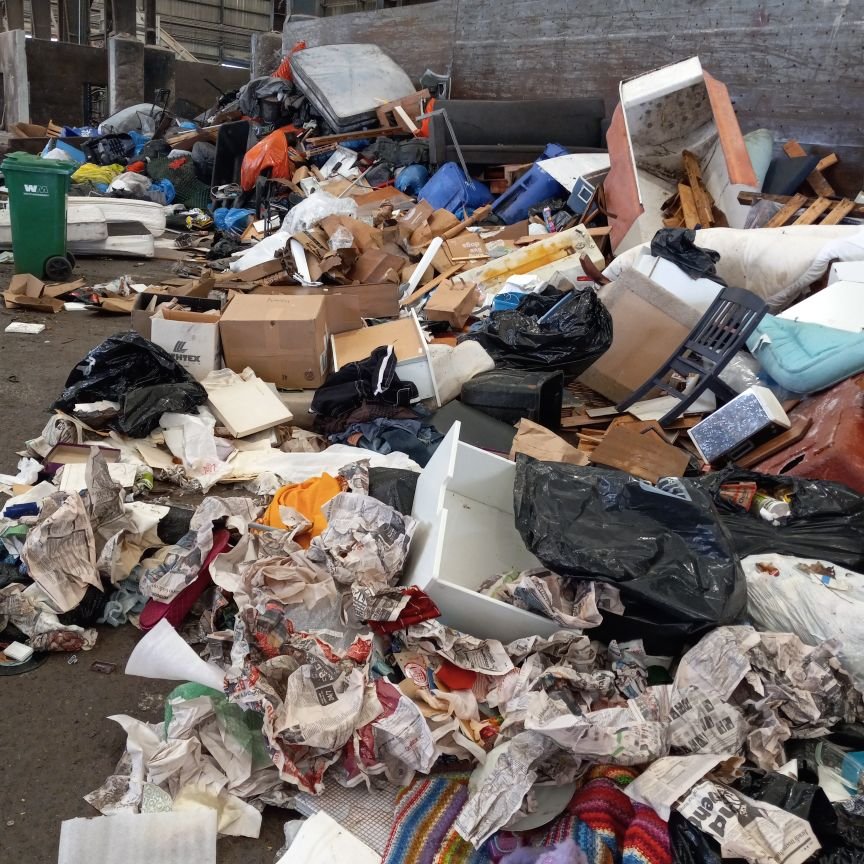Browsing Liquid Waste Challenges with Reclaim Waste Melbourne's Competence
Browsing Liquid Waste Challenges with Reclaim Waste Melbourne's Competence
Blog Article
Discovering the Importance of Reclaim Waste in Sustainable Waste Administration Efforts
In the realm of sustainable waste management, the principle of reclaiming waste arises as a vital element that requires interest and factor to consider. By analyzing the detailed interplay between waste reclamation and lasting waste management efforts, we start to unravel a narrative that expands beyond standard waste disposal methods.
Significance of Reclaiming Waste
Why is recovering waste crucial in lasting waste monitoring techniques? Redeeming waste plays a critical duty in lasting waste management by decreasing the quantity of waste sent to garbage dumps, saving natural resources, and decreasing ecological effect.
Moreover, recovering waste promotes a circular economic situation where products are reused and recycled continually, promoting a more lasting and reliable use resources. It also adds to the development of green work and economic growth in the recycling and waste monitoring market. By incorporating waste reclamation practices right into waste administration businesses, neighborhoods and strategies can move in the direction of a much more lasting future, where waste is checked out not as a burden however as a valuable resource.
Advantages for the Environment
In the world of sustainable waste monitoring, the practice of redeeming waste not only preserves natural deposits and reduces waste sent to garbage dumps yet also generates substantial benefits for the atmosphere. By recovering waste products, such as metals, glass, plastics, and organic matter, the ecological impact of resource extraction and manufacturing is decreased (Industrial waste water treatment). This leads to reduced energy consumption, decreased greenhouse gas exhausts, and reduced levels of air and water pollution connected with removing resources
Additionally, recovering waste aids in the preservation of biodiversity and all-natural environments. It reduces the requirement for garbage dump space, consequently reducing land deterioration and environment destruction. In addition, the process of redeeming waste usually entails recycling and repurposing materials, which in turn reduces the need for new products and the linked energy and resources required for their manufacturing.
Contribution to Round Economic Situation
Playing a crucial duty in cultivating sustainability and source effectiveness, recovering waste makes a considerable contribution to the circular economic situation. By reestablishing disposed of materials back into the manufacturing cycle, redeeming waste lessens the requirement for virgin resources, thereby decreasing the overall environmental influence of source extraction and intake. This procedure lines up with the principles of the round economic climate, which emphasizes optimizing the worth and utility of sources with closed-loop systems.
Additionally, reclaiming waste advertises development and encourages the advancement of new modern technologies and processes for recycling and upcycling products. This not only decreases waste sent out to garbage dumps but likewise creates brand-new economic chances by generating second resources for making industries. Because of this, recovering waste aids to produce an extra sustainable and resistant economy that is much less depending on scarce resources and susceptible to disturbances in the supply chain. Inevitably, by integrating waste recovery methods sites into waste administration areas, organizations and initiatives can actively add to developing an extra regenerative and circular economic climate.
Decreasing Landfill Waste

In addition, applying waste-to-energy modern technologies can assist in decreasing the volume of waste sent out to land fills while likewise generating power. Motivating making use of recyclable products, such as purchasing bags and canteen, can considerably decrease the quantity of waste that eventually ends up in land fills. Education and awareness campaigns on correct garbage disposal and the importance of lowering, reusing, and recycling can also play a crucial duty in decreasing land fill waste. By prioritizing the decrease of land fill waste, sustainable waste management practices can be boosted, leading to a much healthier setting and economic climate.

Future Implications
Taking into consideration the quick improvements in innovation and developing environmental obstacles, the future implications of sustainable waste monitoring are positioned to transform current techniques. The fostering of innovative modern technologies such as expert system, Internet of Points (IoT), and blockchain can considerably enhance waste surveillance, sorting, and reusing processes. These advancements allow real-time tracking of waste streams, recognition of recyclable products, and enhanced efficiency in source allocation.
Additionally, the shift in the direction of a circular economic climate model, view it where resources are recycled, recycled, or upcycled, will certainly become progressively prevalent. This shift not just decreases the dependence on virgin products but additionally minimizes waste generation, causing an extra ecologically pleasant and sustainable waste administration strategy.
Additionally, the assimilation of lasting waste management methods right into wider sustainability agendas is expected to get traction. Industrial waste water treatment. Organizations and federal governments worldwide are recognizing the value of waste reduction and recycling in combating climate modification and advertising a round economy. Therefore, policies and guidelines sustaining lasting waste administration efforts are likely to end up more helpful hints being more rigid, driving markets towards more environment-friendly techniques
Conclusion
Finally, the significance of redeeming waste in lasting waste management initiatives can not be overstated. By reclaiming waste, we can reduce environmental influence, add to a round economy, and minimize land fill waste. This strategy holds assurance for future effects in waste monitoring methods, highlighting the value of resource efficiency and ecological sustainability. Redeeming waste is a crucial action in the direction of producing a much more ecologically friendly and sustainable future.
By analyzing the elaborate interplay in between waste recovery and lasting waste administration efforts, we begin to decipher a narrative that expands beyond standard waste disposal approaches. Redeeming waste plays a vital duty in sustainable waste monitoring by lowering the quantity of waste sent to landfills, preserving all-natural resources, and minimizing ecological effect. By incorporating waste recovery methods into waste monitoring services, strategies and areas can relocate towards an extra sustainable future, where waste is watched not as a concern but as a useful source.

Report this page